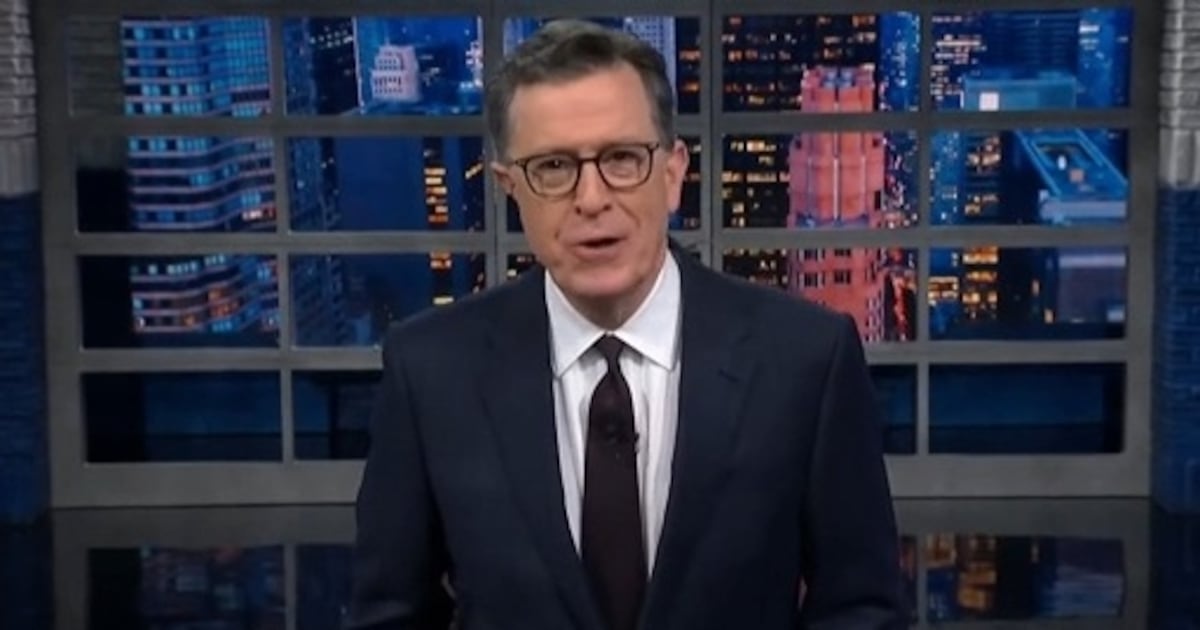Not sure what to watch next? Subscribe to The Daily Beast’s Obsessed See Skip newsletter here and get the latest show and movie recommendations every Tuesday.
There are roughly 47,000—oh, wait, a new Netflix Original just dropped; make that 47,001—TV shows and movies coming out each week. At Obsessed, we consider it our social duty to help you see the best and skip the rest.
We’ve already got a variety of in-depth, exclusive coverage on all of your streaming favorites and new releases, but sometimes what you’re looking for is a simple Do or Don’t. That’s why we created See/Skip, to tell you exactly what our writers think you should See and what you can Skip from the past week’s crowded entertainment landscape.

Skip: Murder Mystery 2
Murder Mystery 2 is firm proof that too much of a good thing can make you sick. Adam Sandler and Jennifer Aniston might be a typically delightful pair, but even they can’t revive this humdrum sequel to a whodunit comedy that was barely any good in its first iteration.
Here’s Nick Schager’s take:
“For his Saturday Night Live work, Billy Madison, and Happy Gilmore alone, Adam Sandler deservedly earned the Mark Twain Prize for American Humor that he recently received from the John F. Kennedy Center for the Performing Arts. Nonetheless, the comedian’s cinematic oeuvre boasts far fewer triumphs than disasters, and almost none are drearier than Murder Mystery, a 2019 dud with Jennifer Aniston about a New York couple embroiled in an international homicide case that somehow ranked as Netflix’s most-watched 2019 feature.
A sub-Agatha Christie affair that was primarily notable for its flat tone, lethargic plotting, and leads’ lack of comic chemistry, it proved a whodunit that was so unfunny its only real mystery involved figuring out where the filmmakers expected viewers to laugh. That conundrum continues in Murder Mystery 2 (which premieres March 31), a follow-up that, as with so many Sandler efforts, feels like a ritzy vacation for its stars masquerading as a legitimate movie.
Written once again by James Vanderbilt, it dispenses about as many good jokes as its predecessor—which is to say, none. This time, there’s a heightened focus on large-scale action set pieces that take place on a tropical island and throughout Paris, from the Palais Garnier and the Eiffel Tower to the Arc de Triomphe.”

See: The Big Door Prize
The Big Door Prize provides steady, realist humor and witty introspections about life’s biggest questions, as small-town residents discover their true potential. Finally, something to quell Ted Lasso’s particular brand of cloying, unrealistic niceness. Read more.
Here’s Coleman Spilde’s take:
“The Big Door Prize, which has dropped its first three episodes on Apple TV+ and will air weekly for the rest of the season, is baked in covert existential questions. The series, adapted from M.O. Walsh’s 2020 novel of the same name, unfolds in the small, idyllic town of Deerfield, where a mysterious machine has just appeared in the local general store.
The contraption, called the “MORPHO,” promises users that it will reveal their life’s potential for the price of only eight quarters (and maybe a couple of pieces of personal data). Faced with the assurance that they’ll have their true selves revealed, Deerfield’s zany residents line up to fork over their two dollars. It turns out, one little word on a card of paper stock is enough to turn this town upside down.
But things don’t go awry in the ways that one would think they might if an entire town was suddenly thrust into interpersonal crises. Despite its heady premise, The Big Door Prize balances the weight of philosophical reflection with keen, intelligently crafted humor surprisingly well. What could easily be an obnoxiously high-concept study of humanity flies by with winsome joy, refusing to waste its time on overcomplicated storytelling that never gets to the point. Propelled by a fabulous ensemble cast, The Big Door Prize is a compassionate examination of life’s cosmic comedy.”

See: Tiny Beautiful Things
Tiny Beautiful Things may have a silly, insipid name, but there’s no shortage of comfort to be found in this advice column-turned-series. Kathryn Hahn faces down all of life’s dilemmas, from fast food corporations to life and death in equal, stirring measures.
Here’s Fletcher Peters’ take:
“Tiny Beautiful Things begins with one of the biggest life dilemmas of our modern age: Is it okay to eat Chick-fil-A? Or should we all avoid the fast food restaurant like the plague? A drunken Clare Pierce (Kathryn Hahn) debates this with herself, as she rides in the passenger seat of her husband Danny’s (Quentin Plair) car. She’s already chomping on a greasy fried chicken sandwich, lathered in honey mustard sauce and paired with crisp waffle fries, so perhaps the decision has already been made. But Clare is upset with herself for ordering from such a rancid corporation, grappling with her embarrassment as she shoves more bites of juicy chicken into her mouth.
Though she’s right that Chick-fil-A is a harrowing business run by the allegedly racist, homophobic Dan Cathy—I, myself, never opt to dine there, though I’ll go along with others if they insist—it’s hard to deny how delectable those damn sandwiches and fries are. Suggest Popeyes, McDonald’s, and KFC all you want; nothing will top the unfettered deliciousness of a Chick-fil-A chicken sandwich. Though it goes much deeper than deliberating on fast food chains—like divorce, death, and life’s many woes—Tiny Beautiful Things treats each dilemma with the same earnestness, never rendering a single impasse as something black and white.”

Skip: Tetris
Tetris is a scatterbrained biopic that takes a puzzling (pun intended) approach to the famous video game. Is this a criticism of Soviet-era politics, or a love letter to the ’80s that skirts the game’s origin story to ride on nostalgia? All of these pieces just don’t fit.
Here’s Allegra Frank’s take:
“There are few joys as pure as playing Tetris, which has single-handedly accounted for millions, if not billions, of hours of lost time. The game’s impossible-to-put-down nature is such that one apocryphal tale claims a Moscovian medical lab banned it for distracting its workers. Outlawing fun? That’s the kind of schoolmarm behavior that American media loves to shock us with when talking about foreign countries, as if we’re expected to forget about our own teachers snatching away our Pokémon cards during elementary school.
Watching Tetris (March 31 on Apple TV+), a film that translates the game’s time-suck quality into something way too literal, it’s impossible to come away without thinking that the USSR was uniquely anti-fun. It was a place where the heads of Nintendo of America (fun personified!) are thrust into a getaway car, chased down by the KGB. It was a place where the mere existence of a game like Tetris could be cause for an international incident.”
Sign up for our See Skip newsletter here to find out which new shows and movies are worth watching, and which aren’t.






